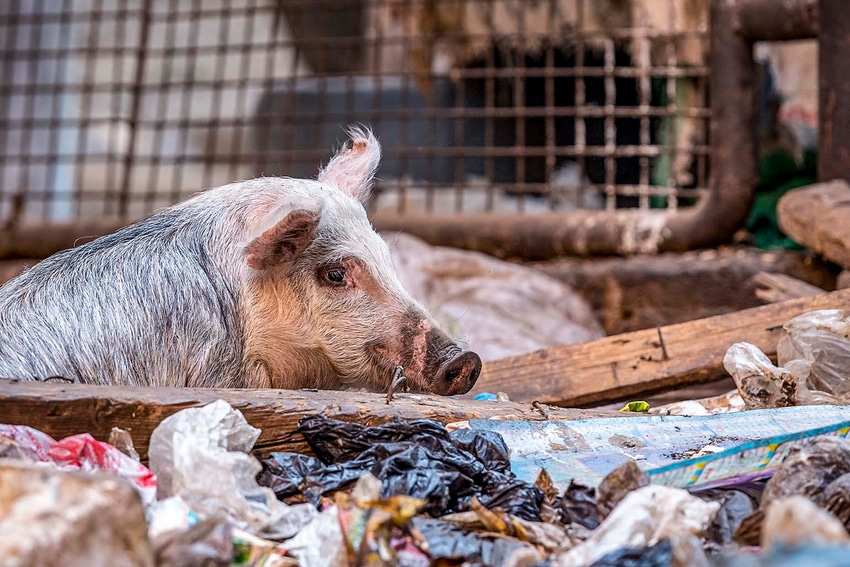ASF can be transmitted through food waste, not human waste
Even if a person ate pork infected with African swine fever, the virologist says “it is highly unlikely that infectious virus would survive all the way through the body.”

Call it garbage, rubbish, scraps or what have you, the USDA Animal Health and Plant Inspection Service has had controls in place for decades on international food waste from ships, airlines and international conveyances. These controls require all international garbage to be disposed of appropriately and under APHIS supervision. Internationally transported garbage must be moved under seal to approved incineration facilities.
That’s affirmative news for the U.S. swine industry with rising concerns surrounding African swine fever. ASF can be transmitted to pigs through the feeding of food waste containing contaminated pork products.
The term “waste” keeps getting used when we talk about the spread of ASF virus, but it’s important to note the term only applies to food waste, not human waste.
“I think there might be some confusion about what kind of waste we’re talking about,” says Dan Rock, a virologist in the Department of Pathobiology with the University of Illinois. “I think it’s common practice in many places including the United States, that food waste coming off of boats or airlines arriving from international locations, is incinerated.”
ASF is a pig-specific disease and humans cannot contract the virus. Even if a person ate ASF-infected pork, Rock says “it is highly unlikely that infectious virus would survive all the way through the body —passing through the gastrointestinal tract where the virus would encounter both low and high pH, and highly active proteolytic enzymes — and then end up in human waste in sufficient amounts to cause a problem.”
“It’s hard for me to imagine a scenario where human waste would pose an ASF threat,” Rock says.
Dave Pyburn, vice president of science and technology for the National Pork Board agrees, saying the odds of the ASF virus surviving a human stomach’s acidity is remote at best. Also, there has been no research conducted on this hypothesis that NPB is aware of.
Additionally, Pyburn says remember that the USDA always has measures in place to prevent sick animals from entering the human food supply, including ASF if it is ever detected in the United States. This daily vigilance is another part of priority of food safety for the pork industry.
Just as it is important to tell folks ASF is not a public health threat and humans cannot contract the virus; it’s also important to be clear within the industry. It’s food waste we are concerned about, not human waste for transmission of the virus to pigs.
About the Author(s)
You May Also Like





